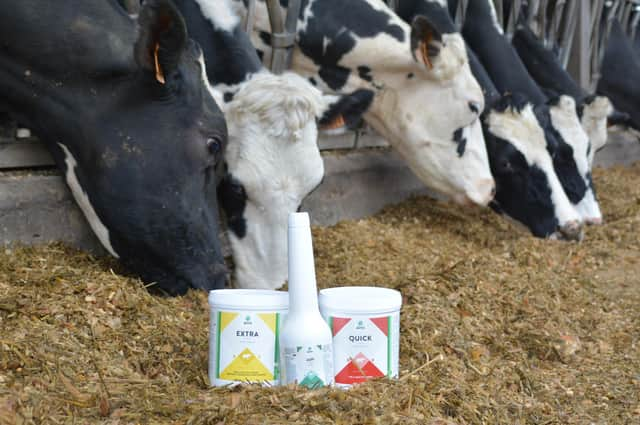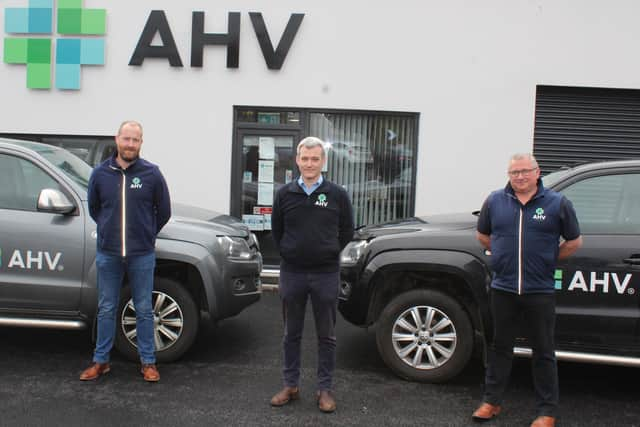Antibiotic usage – the clock is ticking as major changes are confirmed


The over arching theme selected for 2021 was: Spread Awareness, Stop Resistance.
It called on ‘One Health’ stakeholders, policymakers, health care providers, and the general public to be antimicrobial resistance (AMR) Awareness champions.
So much for the background


Advertisement
Advertisement
One of the world’s leading experts on AMR has confirmed that dairy and other livestock farmers will have no option but to reduce their dependence on antibiotic usage. Moreover, these changes will be coming down the track for farmers throughout the UK in the very near future.
Professor Johanna Fink-Gremmels, from Utrecht University, made these comments while addressing a recent Animal health Vision (AHV) hosted webinar for representatives of farm stakeholder organisations throughout Ireland.
She added:“This is already happening across Europe. In the Netherlands, for example, dairy farmers must practice selective dry cow management. This was made mandatory in 2019.
“Linked to this, all milk buyers in the Netherlands have made it mandatory for their dairy farmer suppliers to milk record.
Advertisement
Advertisement
According to Fink-Gremmels, the UK has signed up to legislation that will drastically reduce the levels of antibiotics and antimicrobials used within production agriculture, adding:“Brexit will not change this. AMR is a global challenge, one which the UK government fully recognises.”
Fink-Gremmels confirmed that there are no new antibiotics in the pipeline. She said:“And this will remain the case. But research carried out over recent years has delivered new insights into the way that bacteria operate.
“This work is helping to develop new science, which will be at the heart of new therapies that can be used to maximise animal health standards on farms.”
But the good news is that Northern Ireland continues to lead the way, in many aspects, where AMR measures introduced within the UK are concerned.
Advertisement
Advertisement
Quorum sensing is one of the more rapidly evolving sciences that have evolved to help tackle the scourge of diseases caused by bacteria and parasitic fungi. A concept that discovered by Professor Bonnie Bassler at Princeton University in 2010,and has been adapted by Animal Health Vision.
AHV’s founder and Chief Scientific Officer Dr DVMGertjan Streefland explained: “Antimicrobial resistance is not a new phenomenon. The plant kingdom has been dealing with this issue almost since the beginning of time.
“AHV was established to convert this science into practical solutions for livestock farmers, who want to focus more so on improving overall health of animals on farm. When the overall level of health increases it has a positive effect on the likes of production and longevity of the herd.”
Streefland continued: “What we now know is that bacteria must gather together in groups in order to impact on the host animal. To make this happen they must communicate with each other through a process called ‘quorum sensing’. In essence, individual bacteria emit signal molecules so as to make this grouping process come about.
Advertisement
Advertisement
“In response, AHV solutions have been developed to disrupt this communication process.”
AHV has been operating in Northern Ireland for the past three years. The exponential growth of the business over the past three years is proof positive of the fact that dairy farmers here are buying-into the core farm management principles espoused by the business. Moreover, the company’s extensive solution range and consultation service are delivering for customers.
AHV UK & IE managing director Adam Robinson commented: “Quorum sensing allows the animal’s own immune system to combat a health challenge. It does this by removing the biofilm that shields many bacterial populations from an animal’s own immune system.”
He added: “The AHV concept is to improve the overall health of the animal – the solutions have been specifically designed to boost the host animals immune system.”
Advertisement
Advertisement
Adam pointed out that it is vital to start looking at health challenges in a proactive approach, rather than reactive. He also highlighted again the benefits that regular milk recording can deliver for every dairy farmer in Northern Ireland.
“Data from milk recording allows the farmers to see their problem cows, repeat offenders or potential problems. Cows with a constant cell count issue are deemed as chronic and are affecting other cows in the herd.”
Adam continued:“Less than half of the dairy farmers in Northern Ireland regularly milk record. This figure is far too low.”
He concluded:“Milk recording provides the core information required by dairy farmers practising selective dry cow dry management treatment systems. This will be one of the sector’s key responses to the challenge of AMR.”
AHV will have a major presence at this year’s Royal Ulster Winter Fair. The company will be located on Stand ‘L 79’ in Logan Hall. All visitors will be made more than welcome throughout the day.